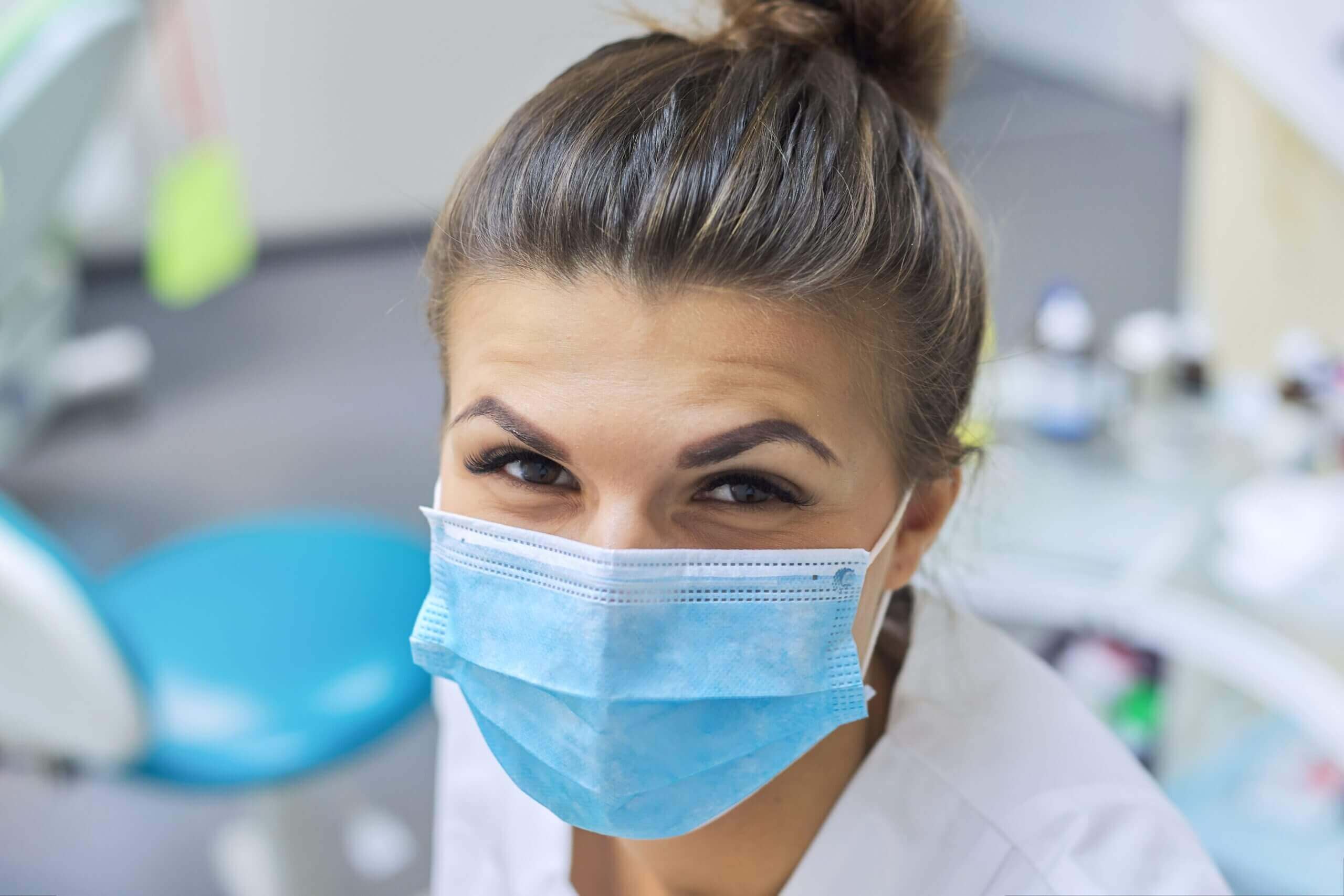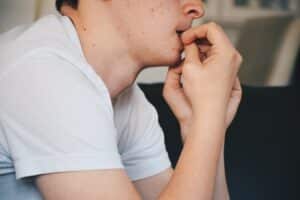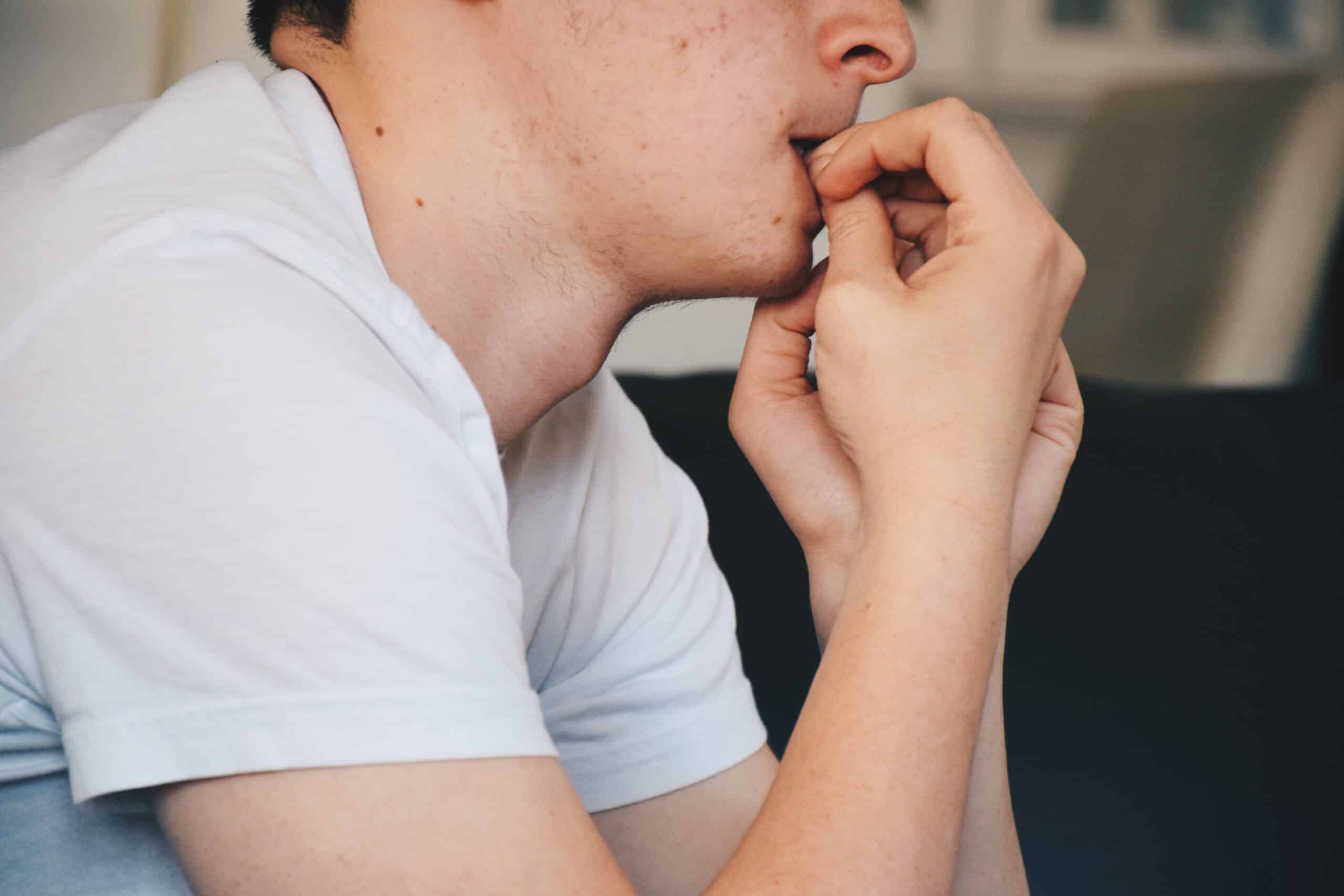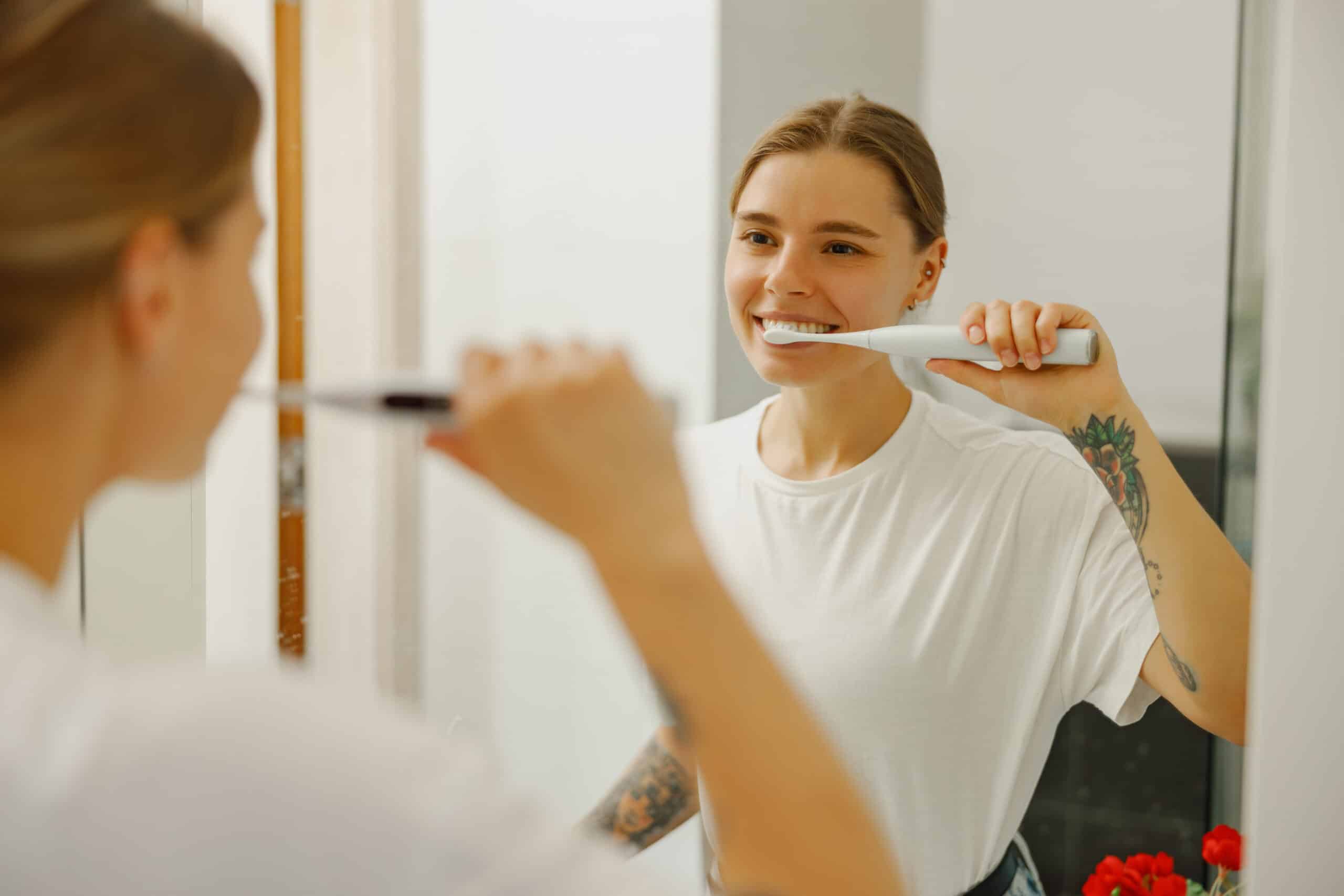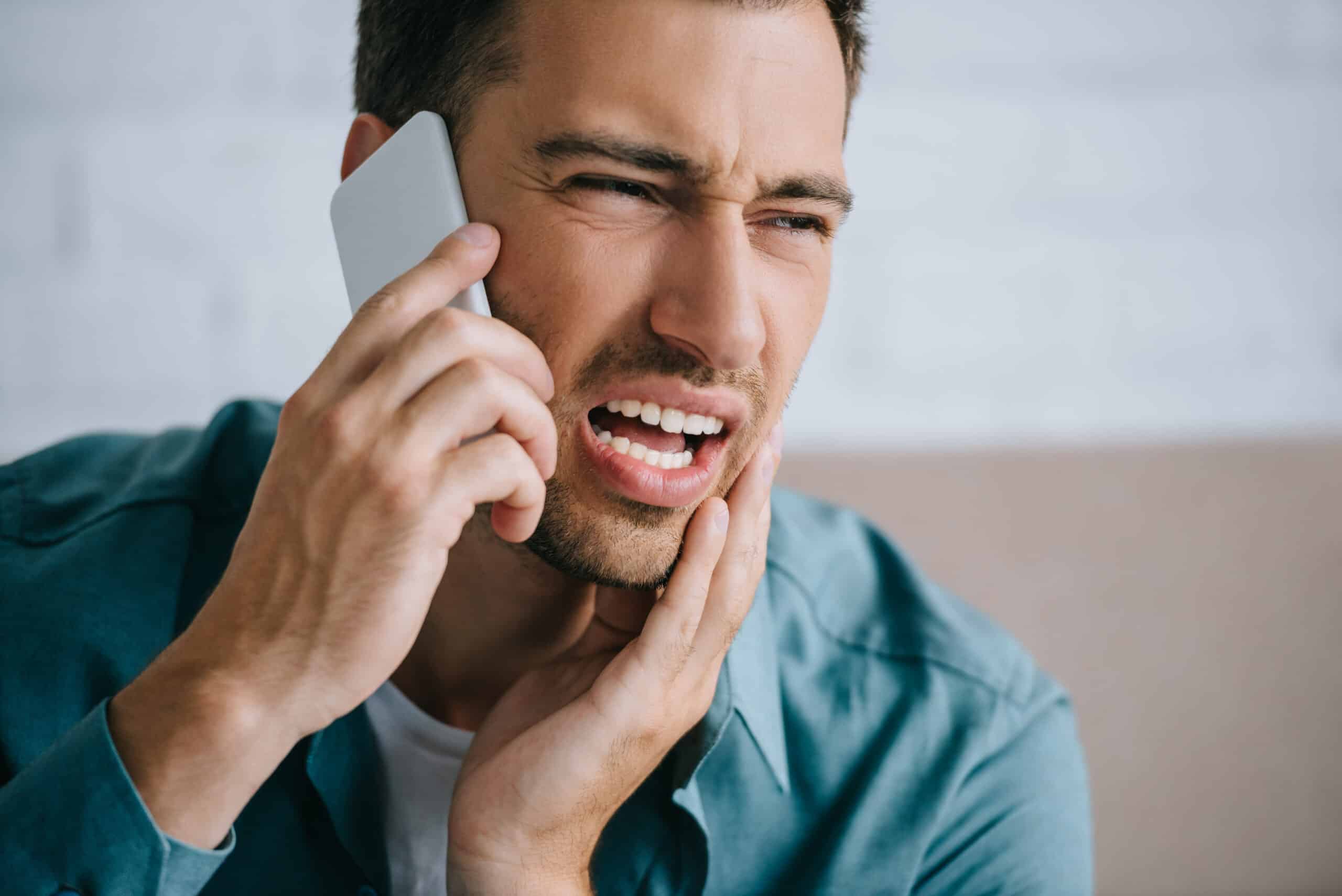- What is mask mouth?
- Oral health risks of mask mouth
- How you can prevent mask mouth
- Can my dentist help with mask mouth?
Since early 2020, public health officials have been advising people to wear face masks when around other people to avoid spreading COVID-19 and other viruses. The face masks are intended to stop the droplets that project from our mouths when we speak from infecting others with the disease.
Face masks have now become part of our daily lives – so much so that many folks treat them like a fashion accessory with bold colours, attractive designs, and even company logos.
However, one unintended side effect of wearing masks in public or around vulnerable people is something called “mask mouth” – a condition that can threaten your oral health care.
What is mask mouth?
Mask mouth can strike anyone, even people who have a history of healthy teeth and gums. This means that mask mouth isn’t a reflection of one’s oral health habits, but comes solely from wearing a face mask, especially for prolonged periods.
Wearing a face mask increases the state of dryness in your mouth. Dry mouth causes an imbalance of bacteria in your oral microbiome and creates the perfect breeding ground for harmful bacteria and viruses to grow.
Usually, your mouth produces saliva made from antimicrobial components to help keep the mouth clean of germs, bacteria, and food particles. Saliva also plays a crucial role in preventing viruses from directly entering our bloodstream.
Wearing a face mask allows bacteria in your mouth to overwhelm saliva production, which produces a very acidic, dry mouth.
Dry mouth can also occur when one doesn’t drink enough water while wearing a mask, smoking or vaping, or consuming strong-smelling foods or acidic beverages such as coffee that can cause odours to linger under the mask and feed the bacteria in your mouth.
The composition of the face masks contributes to dry mouth as well. When wearing a face mask, people tend to breathe through their mouths to improve inhalation capacity. This simple act will dry your mouth out quickly.
The direct result of mask mouth is bad breath, which is unpleasant for you and the people around you when you take your mask off.
Oral health risks of mask mouth
The bacterial buildup that comes from mask mouth can lead to some serious dental health problems, including:
- Dental caries (cavities)/tooth decay: Tooth cavities are caused by dental plaque. Plaque is a sticky substance made up of bacteria biofilms or simply collections of bacteria. Plaque converts sugar you consume into acid, which will slowly eat away at your tooth enamel. Cavities can occur when the tooth enamel is compromised. If left untreated, cavities may lead to toothaches, infection, and tooth extraction.
- Periodontal disease (gum disease): Germs and bacteria on your teeth can harden over time if not removed properly, creating a film called calculus (or tartar). Over time, your gums may begin to appear red and inflamed, a condition called gingivitis. Calculus deposits can also start edging down your gum line, which can cause forming periodontal pockets that lead to periodontal disease and the separation of your teeth from the supporting bone.
Both of these conditions are preventable by taking care of your oral health, even in settings where wearing a face mask is mandatory.
How you can prevent mask mouth
Wearing a face mask could be with us for a bit longer. However, there’s no reason why anyone should suffer from the effects of mask mouth due to public health guidelines.
Here are six ways you can cut the risk to your teeth and gums and solve sour breath from wearing a face mask:
- Stay hydrated: Drink plenty of water during the day to keep your mouth fresh and wash away as many bacteria and food particles as possible
- Eat healthy food: Ensure you eat a balanced and healthy diet to protect your teeth and gums from harm
- Avoid sugary or acidic food and drinks: Cutting down on sugary sweets and beverages will help prevent the buildup of plaque and tartar
- Chew sugar-free gum: Chewing gum will help increase saliva flow and help keep your teeth and gums clean while preventing dry mouth
- Stop smoking and vaping and reduce alcohol intake: Dry mouth can be caused by these habits, so consider making a change that will also help your overall health
- Use mouthwash: Swish with an alcohol-free oral rinse once per day before you put your mask on, but don’t overuse mouthwash to fight bad breath as doing so can dry your mouth out
Combine these strategies with your regular oral health practices:
- Brush twice per day: Brushing regularly will help keep your mouth clean and prevent cavities and gum disease
- Floss at least once per day: Flossing helps you remove food particles and bacteria in places your toothbrush cannot reach
- Clean your tongue: Be sure to brush your tongue or use a tongue scraper to remove stuck food particles and keep your mouth fresh
Another way to help combat the effects of mask mouth is to talk to your dentist about any concerns during your routine checkups.
Can my dentist help with mask mouth?
Your dentist is your partner in your oral health care. They can help you develop proper oral hygiene habits to protect your teeth and gums while under a face mask mandate. During your routine examination, they’ll also talk to you about any concerns they find, discuss treatment options, and provide advice on how to best maintain optimal oral health so when the face mask comes off, you’ll have a beautiful smile to share with the world!
What is mask mouth? Learn from the experts at Yonge Eglinton Dental in Toronto.
For professional advice about mask mouth or any other dental health issue, come see our dental team at Yonge Eglinton Dental, where we focus on helping protect your oral health and overall well-being. Make an appointment today by calling our office at 416-932-2222 or booking online. We look forward to seeing you!
Are you concerned about visiting the dentist? Read about how we protect the health and safety of our patients and staff so your family can seek proper dental care with peace of mind.


